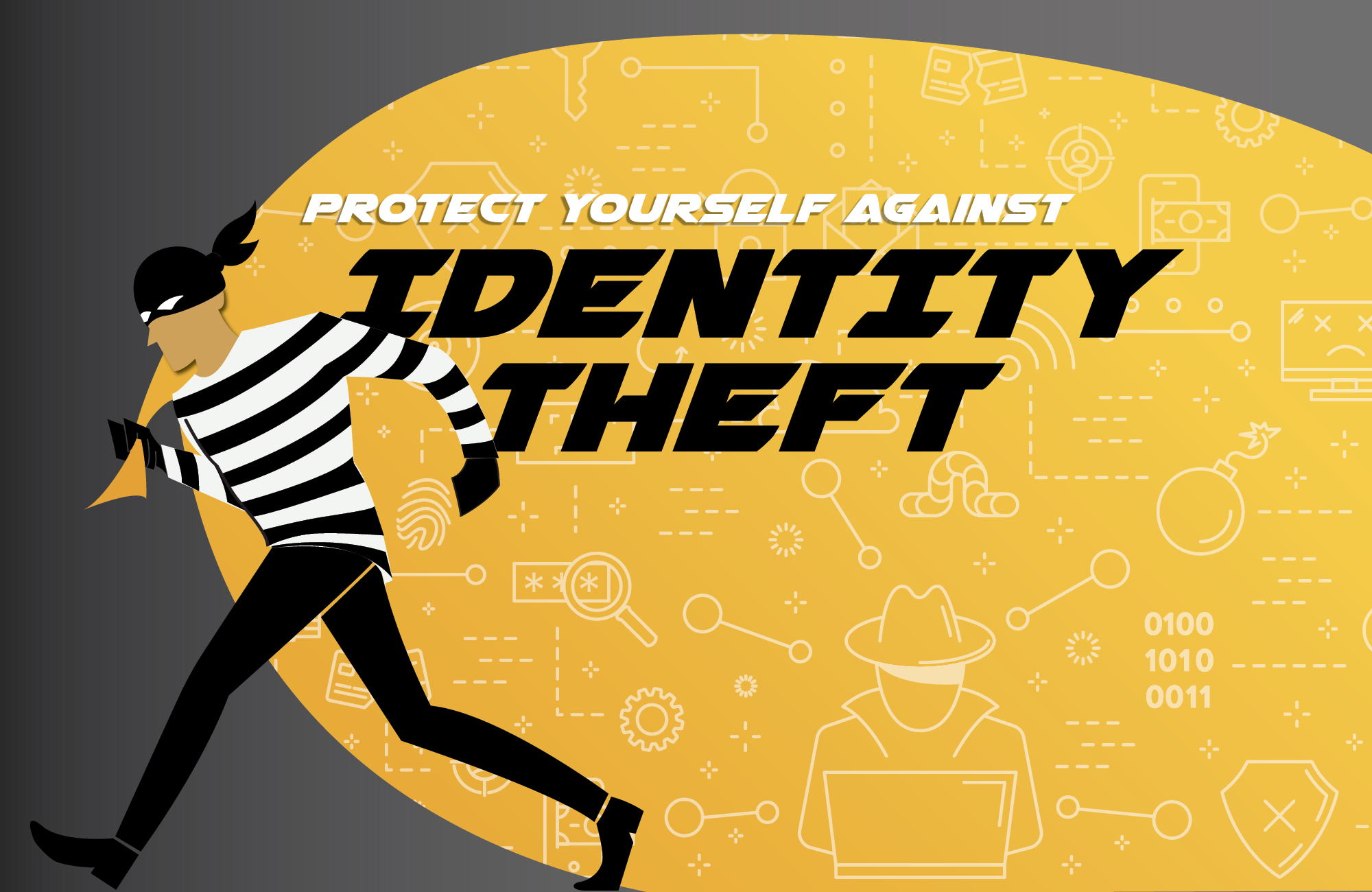
Protect yourself from identity theft with these 10 tips
Protect yourself from identity theft with these 10 tips
Worried about identity theft? It’s more common than you think. A recent study showed that 1 in 20 people were victims of identity theft in 2019. There are countless forms of identity theft, which is the term for when someone steals your personal information to commit fraud.
Scammers are always on the lookout for new opportunities to con, and many are even taking advantage of the COVID-19 crisis. Some of the more common COVID-19 scams include using stolen social security numbers to file for unemployment benefits, impersonating government agencies, or sending phishing emails that look like zoom invitations.
Here are a few ways that you can protect yourself.
- Use a strong password and two-step authentications. Regularly change your passwords, and vary them so that if one is compromised, the others are still secure.
- Set up alerts on your bank accounts and credit or debit cards. You can choose to be notified any time a card is used; money is transferred, or a spending threshold is triggered.
- Check your credit reports. By law, you are able to review each of your three credit reports for free every 12 months. Be on the lookout for unfamiliar accounts, as this is a tell-tale sign that your identity has been stolen.
- Monitor your medical statements. Check your financial and medical statements regularly to ensure that there is no unfamiliar activity. Many times, healthy people have no reason to check their medical; statements, allowing fraud to go undetected for months or years at a time.
- Set an active duty alert. Service members who deploy can set an active duty alert on their credit reports to help minimize the chance of identity theft when they are deployed. An active duty report requires businesses to take extra steps before granting credit in your name. You can place an active duty alert by contacting one of the three major credit bureaus. They are required to contact the remaining credit bureaus.
- Ask questions before you share your social security number. Before sharing your social security number at your workplace, doctor’s office, child’s school, a business, etc., ask why they need it, how they plan to use it, how they plan to safeguard it, and the consequences of not sharing it.
- Never give out personal information online, over the phone, or through the mail unless you initiated contact or know who you are dealing with. If a business that claims to have an account with you sends you an email asking for personal information, do not click on any links. Instead, type the company name into your internet browser and contact their customer service to see if they contacted you.
- Remove personal information from social media. There’s a lot that scammers can learn by simply checking out your social media profiles. Avoid listing your home address, email, phone number, and birthday.
- “Wipe down” your computer or phone before getting rid of it. If you’re selling, donating or discarding your computer or cell phone, make sure that you get rid of all the personal information it stores. For a computer, use a wipe utility program to overwrite the hard drive. For a cell phone, remove the SIM card and refer to the owner’s manual to delete all memory.
- Be wise about Wi-Fi. Avoid sending over personal information when you are using a public Wi-Fi network in a coffee shop, park, airport, etc. unless you know that the network is secure.
If you think you’ve been compromised, act immediately. Visit IdentityTheft.gov and follow the steps provided if you think you have fallen victim to identity theft. They will recommend that you:
- Call the companies where the fraud occurred
- Place a fraud alert on your credit reports and obtain copies of the reports
- Report identity theft to the Federal Trade Commission (FTC)
- File a report with your local police department
Source: Federal Trade Commission
< Go Back
